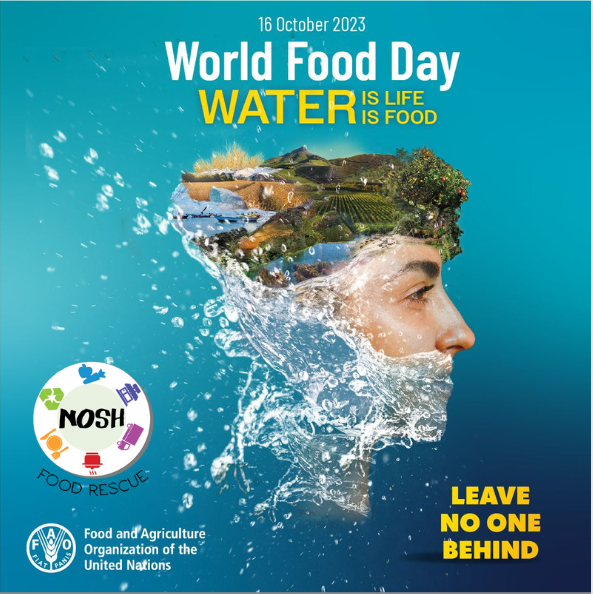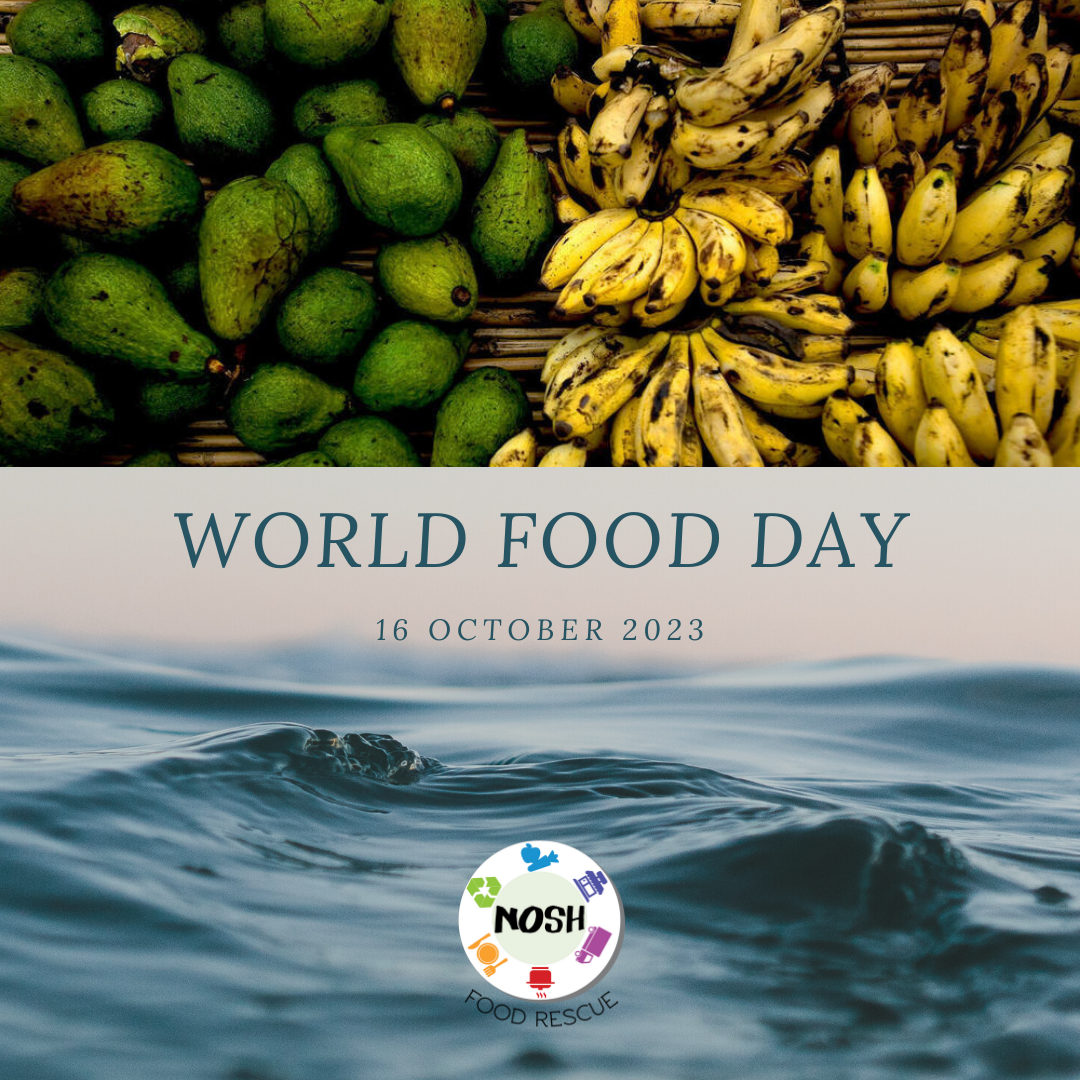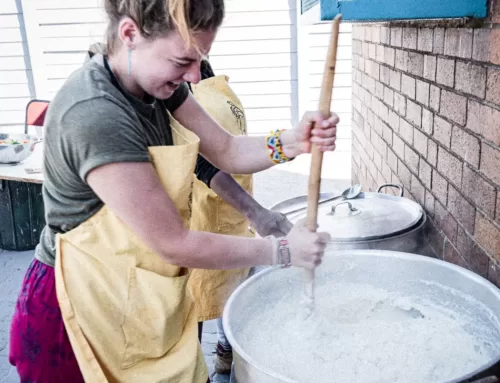“Water Is Food.
Water Is Life.
Leave no one behind”
As NOSH, this #WorldFoodDay we would like to highlight the impact which reducing food waste has on reducing water usage along the supply chain. “As much as half of the water used to grow food globally may be lost or wasted.” – Dr. Charlotte de Fraiture (International Water Management Institute researcher).
NOSH is conscious of the fact that when food is wasted, so are the natural resources that were used to produce that food, which consequently also hampers the fight against food insecurity. The quest for #ZeroHunger cannot be embarked on in isolation without consideration of environmental impacts. The same environment and resources that were used for the entire life cycle of the food are of great importance as they enable continuous food production, and thus need to be conserved. This primarily refers to the elimination of food and water wastage – NOSH ensures that food does not get wasted by rescuing discarded (but safe) food so that it does not end up in landfill sites. Food waste means that all inputs used in producing, processing, transporting, preparing, and storing discarded food are also wasted. Hence, reducing food waste reduces water usage.
It is widely known that landfill sites produce Greenhouse Gases which threaten our planet and exacerbates the Climate Change crisis. Production, transportation, and handling of food generate significant Carbon Dioxide emissions and uses lots of water. Thus, the avoidance of food waste should be prioritised to promote food security, resource and energy conservation, as well as a sustainable planet. The United Nations predicts that the world population will reach 9.3 billion by 2050. This population increase will require a more than 50 percent increase in food production. Reducing food waste can also help feed the world’s growing population more sustainably as decreasing food waste can lessen the need for new food production and would reduce water scarcity.

This year’s theme for World Food Day – “Water Is Food. Water Is Life. Leave no one behind” reminds us of the need to conserve of water. According to Tristram Stuart (author of ‘Waste: Uncovering the Global Food Scandal’), the irrigation water used globally to grow all the wasted food would be enough to meet the domestic needs of the projected 2050 global population of 9.3 billion people. The food system depends on freshwater for many functions, from irrigating crops to processing food products to preparing and cooking food. Like land, usable freshwater supplies are limited and therefore food should only be produced on demand to avoid food and water wastage.
It should be noted that food is wasted all along the food supply chain, from the farm to the food on our tables. In developing countries, 40% of waste occurs at the post-harvest and processing phases, while in developed countries, 40% of waste occurs at the retail and consumer stages. In addition, a globalized food chain means that food waste in industrialized countries has global implications. In industrialized countries, food production exceeds demand because farmers overproduce to ensure that they can deliver what they’ve promised. It is said that “One man’s trash is another man’s treasure”. Let us practice being responsible citizens by mini mizing food waste, together. To support NOSH, please head over to https://noshfoodrescue.co.za/donations/ . Do not get left behind!
mizing food waste, together. To support NOSH, please head over to https://noshfoodrescue.co.za/donations/ . Do not get left behind!
#WorldFoodDay #FoodHeroes #ZeroHunger #SDGs #FoodSecurity #NoshFoodRescue #HelpNoshHelpOthers
Nomcebo Shange







Leave A Comment
You must be logged in to post a comment.